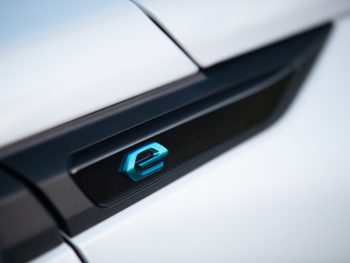Fleet sales down 40% in October but plug-in car demand rising
The new car market fell by a quarter (24.6%) in October, driven by a big drop in large fleet registrations as a result of the chip shortage.

Plug-in vehicles now account for 16.6% of all cars registered so far in 2021
A total of 106,265 units were registered last month; down for the fourth month running according to the Society of Motor Manufacturers and Traders (SMMT).
It’s the weakest October performance since 2021 and most of the decline was driven by the 40.4% fall in registrations from large fleets. ‘Business’ registrations to companies with fewer than 25 vehicles also dropped, down by 45.5%. In contrast, private demand was down by a more modest 3.3%, although that’s in comparison to the pandemic-affected October 2020.
The SMMT said the fall in fleet registrations reflected the ongoing semiconductor shortage, while inflation rises, tax increases and weaker consumer confidence had also taken their toll on the new car market.
As a result, total year-to-date registrations are only 2.9% ahead of Covid-hit 2020, with fleet up just 1.8%.
And in light of the ongoing supply issues and deteriorating economic outlook, the industry now only expects to finish the year on 1.66 million units; just 1.9% over 2020.
But, plug-in vehicle uptake remained strong in October despite the overall decline in registrations. Battery electric vehicle (BEV) registrations were up 73.1% to 16,155 units, equalling their September market share of 15.2%. Meanwhile, plug-in hybrid vehicle (PHEV) registrations were up 7.5% to 8,382 units and had a 7.9% market share.
Plug-in vehicles now account for 16.6% of all new car registrations in 2021, which, when joined by a further 9.1% from hybrid electric vehicles means that 25.7%, or more than a quarter of the new car market, has been electrified year-to-date.
Based on such rapid uptake rates, the SMMT forecasts that more plug-in vehicles will join Britain’s roads in 2021 than during the whole of 2010 to 2019 combined, with a total 287,000 units expected to be registered by the end of the year.
Plug-in demand to shore up new car market in 2022
Demand for plug-in vehicles is also expected to underpin a partial new car market recovery in 2022, with the industry anticipating some 1.96 million new car registrations next year. BEVs are anticipated to be more popular than new conventional and mild hybrid diesels by the end of 2022, while plug-in cars as a whole are expected to account for more than a fifth (21.5%) of all new car registrations next year.
However, the SMMT has said that the continuation of the switch to plug-in vehicles will depend on incentives being preserved and the ability of the public and private sectors to increase public on-street charging to allay EV driver concerns.
Meryem Brassington, electrification propositions lead at Lex Autolease, agreed: “As electric vehicles continue to increase their market share, sustained investment from policymakers to facilitate the journey towards an electric future will be critical. The Government’s EV infrastructure and manufacturing commitments in the Net Zero Strategy are a step in the right direction, while innovation and the decarbonisation of road transport is needed to drive forward the transition to zero emission vehicles. All eyes will be on industry leaders at COP26 as we strive to clean up the UK’s roads ahead of the 2030 ICE ban deadline.”
Lucy Simpson, head of EV enablement at Centrica Business Solutions, also called for more action: “The £1bn commitment to boost electric vehicle charging and production in the government’s Net Zero Strategy is a welcome step, but we need to see quicker action – the roll out of charge points must keep pace with the acceleration in EV registrations if we are going to achieve a greener future for transport.”
And Jon Lawes, managing director at Hitachi Capital Vehicle Solutions, said the Government needs to go much further to support the upward trajectory of EV registrations.
“The ZEV mandate would be a step in the right direction, but significantly more public sector-led investment in EV infrastructure is paramount. We need policy clarity from Government, not soundbites.”
Meanwhile, Jamie Hamilton, automotive director and head of electric vehicles at Deloitte, outlined that despite the current challenges for fleet registrations this month, there may be better news ahead.
“With CFOs placing greater emphasis on increasing capital expenditure in the quarter ahead, and with more businesses looking to reduce emissions by transitioning fleets and company cars to electric, we should see fleets pursue replacement vehicles at scale sooner rather than later.”












